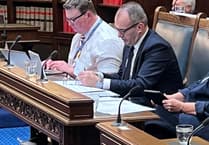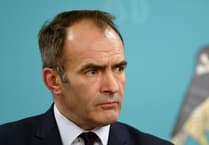The Isle of Man Chamber of Commerce has warned that some businesses could face hardship, layoffs and possible closure if Tynwald approves a proposed 9.9% rise in the minimum wage next week.
The proposed increase would take the island’s single hourly rate from £12.25 to £13.46 – a move the government says is based on setting the rate at 66% of median earnings.
While the Chamber said it supports efforts to modernise and make the wage calculation more transparent, it has called for the rate to reflect private sector medians rather than including higher public sector salaries, which it says result in an over-inflated figure.
In a statement, the Chamber said: ‘Isle of Man Chamber of Commerce is strongly in favour of any moves that would modernise and update the process used to calculate the minimum wage. While we tentatively agree with the recently announced change in calculation methodology, we and our members still feel that it needs to be based on a more transparent model reflecting the private sector medians, rather than the current methodology which leads to an over-inflated hourly rate because public sector salaries are included.
‘If Tynwald votes to support the proposed minimum wage increase on Tuesday, many businesses in the sectors most negatively impacted by the over-inflated proposed rate - including hospitality - will face hardship, layoffs, and sadly we fear that some may close as a result.’
The Chamber said there was widespread concern across the Island’s business community about the short and long-term impact of the rise, particularly on hospitality, which it described as vital to both the local and visitor economies.
It added: ‘Chamber represents the whole business community - which ranges from fast-growing global tech businesses through to small, family-run coffee shops, and every type of business in between - and we understand that some sectors will be affected more than others by the proposed increase.’
The concerns echo those raised earlier this month by the government’s Minimum Wage Committee, which said it could not recommend the 9.9% rise due to its likely impact on businesses and inflation.
In a letter to Enterprise Minister Tim Johnston, committee chair Anne Marie Weadock said members believed a rate of £13.46 an hour would be unsustainable for many low-paying employers and could negatively affect competitiveness and employment.
The committee warned the increase could also contribute to higher inflation and risk pricing some disabled workers out of the labour market.
It said it could support a lower rate of £12.42, based on private sector median earnings alone, and noted similar concerns from the Chamber of Commerce about the methodology used to determine the new figure.
Despite the committee’s opposition, Mr Johnston has pressed ahead with the proposed rise, and a motion has been tabled for next week’s Tynwald sitting on Tuesday, October 21.
The Department for Enterprise and Treasury are required to consult with the Minimum Wage Committee before changing the rate, but there is no statutory obligation to follow its recommendations.
.jpg?trim=0,0,0,0&width=752&height=501&crop=752:501)

.jpeg?width=209&height=140&crop=209:145,smart&quality=75)
.jpg?width=209&height=140&crop=209:145,smart&quality=75)
